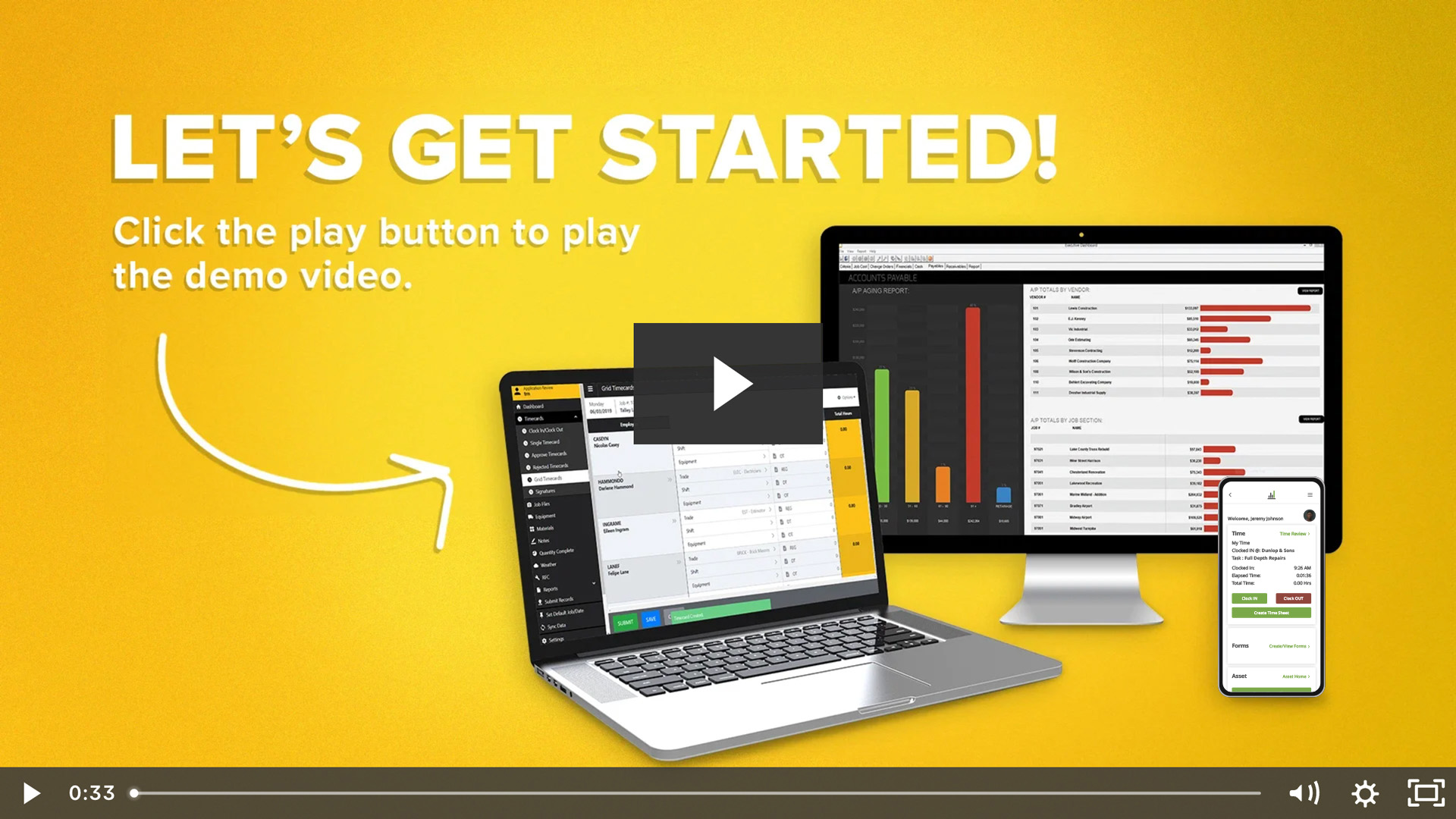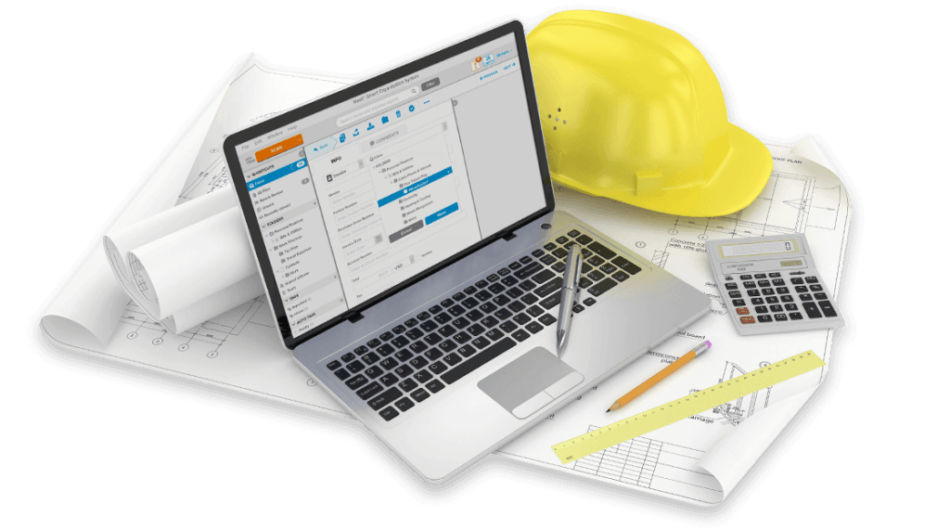
As increasing numbers of commercial construction businesses rely on technology as a viable tool, it’s essential to understand the potential dangers or threats in the modern digital landscape. Every day, companies, organizations, and even individuals face the possibility of their data being stolen, corrupted, and used for the benefit of others. It’s more necessary than ever to incorporate data security measures into software systems to protect users from online threats. Let’s delve further into the significance of data security within accounting software for contractors.
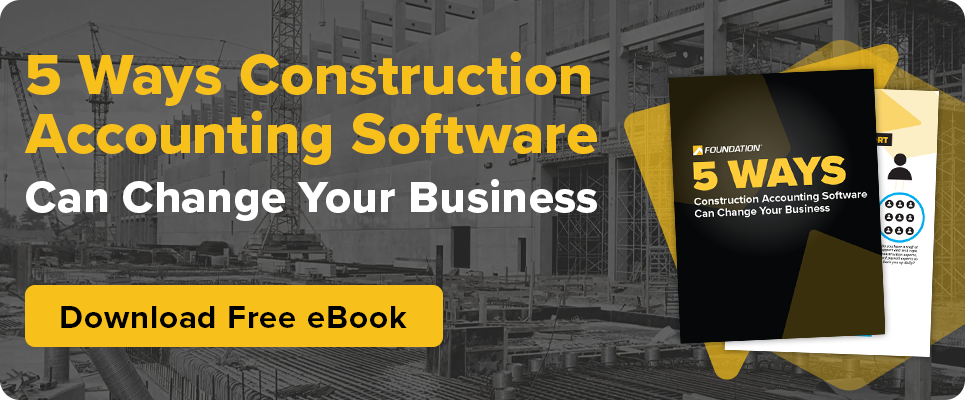
Why is Data Security Important to a Construction Business?
Accounting software is vital in streamlining operations and facilitating effective management within a construction company. Its comprehensive features enable seamless compilation, configuration, and information sharing. Nonetheless, it’s important to recognize that these software solutions also introduce potential risks, as cybercriminals and hackers may exploit vulnerabilities. Consequently, prioritizing data security becomes crucial in proactively identifying and fortifying weak points within your organization’s cyber defences.
Potential Threats to Construction Accounting Software
Accounting software systems hold valuable information as both personal and financial data are stored on file. Hackers can use this proprietary information to engage in various fraudulent activities, such as identity theft, financial fraud, phishing scams, ransomware attacks, and medical identity theft. There are several areas that are most often targeted and require enhanced software security. These include:
- Company Data – When hackers get access a company’s database, they attempt to sell their access to other cybercriminals who exploit the information. A hacker will attempt to sell to as many entities as possible. This renders a business compromised and leaking valuable data. With data security software in place, it’s harder for unauthorized users to gain access.
- Employee Information – Employee information contains sensitive personal data, including social security numbers and addresses which can be targeted by cybercriminals to use for identity theft or other fraudulent activities. Since the company holds such important records, data breaches that compromise employee information can result in legal and regulatory consequences. Ensuring robust software security is crucial for keeping employee information protected.
- Hardware – Hackers use viruses to infiltrate computer systems, collect valuable data and siphon financial resources. Ransomware, for instance, is a virus that holds an entire company or organization’s operations hostage. By hijacking control of their computer systems, the hackers force companies to pay a hefty ransom. Proper data security can identify and manage these threats.
Common Methods of Data Security
Safeguarding sensitive information from unauthorized access is part of standard data security procedure. Some commonly employed methods that help protect businesses from potential breaches include:
- Encryption – Data encryption is a security technique that converts data into an unreadable format using algorithms. Accounting software for contractors can encode sensitive information, such as financial data and project details, into an encrypted form. This ensures that only authorized individuals with the proper decryption key can access and decipher the data.
- Firewalls – A data firewall acts as a barrier between internal and external networks, controlling and monitoring network traffic. Construction accounting software may utilize data firewalls to protect sensitive data by filtering incoming and outgoing network communications. This helps prevent unauthorized access and blocks potential threats, such as malicious network attacks or unauthorized data transfers.
- Anti-virus Software – Anti-virus software is integrated into the construction accounting software to detect, prevent, and remove malicious software, such as viruses, malware, and other cyber threats. It scans files, programs, and incoming data for known patterns of malicious code, providing real-time protection to ensure the integrity and security of its associated data.
- Data Backups – Data backups create duplicate copies of critical information at specific intervals to ensure that the most recent backup can be used for recovery in case of a data breach or system failure. With up-to-date backups, construction businesses can restore critical information and resume operations more swiftly, minimizing potential downtime and data loss.
Implementing these powerful data security measures allows construction businesses to protect their information effectively, securely maintain employee records, and ensure compliance with legal and regulatory requirements.
Key Security Measures to Look for in Construction Accounting Software
Keeping cyber criminals out of a company’s most valuable data is imperative to keep the business profitable and the employees’ information protected. When searching for construction accounting software, it is essential to consider robust security measures, like:
- Cloud-based technology – Cloud-based technology refers to utilizing remote servers and networks accessible through the internet to store, manage, and protect data and applications. Since the data is safely housed in a third party’s database, it’s easy to share information at any time and from any place with employees, colleagues, clients, and partners.
- Sophisticated SQL Server® – One of the most effective safeguards against cyber criminals is to store your data on a database that offers password encryption and built-in measures to protect data in the event of hardware failure, such as Microsoft® SQL Server.
- Two-step authentication – Also known as two-factor authentication (2FA), it is a security measure that adds an extra layer of protection to accounting software. It requires users to provide two authentication factors to verify their identity.
- Secure user permissions – These permissions determine the specific actions and data that users can access, modify, or delete. By implementing secure user permissions, organizations can ensure that users only have the necessary level of access required to perform their job responsibilities and prevent unauthorized access to sensitive information. This helps maintain data confidentiality, integrity, and security within the system.
- Disaster recovery planning – Disaster recovery planning involves developing a comprehensive strategy and set of procedures to ensure the timely recovery of critical data and functionality during a disruptive incident or disaster. This planning aims to minimize downtime and data loss, allowing construction companies to resume their accounting operations as quickly as possible.
- Vulnerability scans – This is the process of systematically scanning and assessing the software system for potential security weaknesses or vulnerabilities. It identifies security flaws, misconfigurations, or outdated components that attackers could exploit.
- Service Organization Control II Audits – The SOC II audit assures construction companies and their clients that the software provider has implemented appropriate measures to protect sensitive data, maintain system availability, ensure accurate processing of financial information, safeguard confidentiality, and adhere to privacy requirements. The resulting SOC II report provides valuable information about the effectiveness of the software provider’s controls and their compliance with the defined criteria, giving confidence to contractors.
- General Data Protection Regulation compliance – GDPR compliance refers to adhering to the regulations when handling personal data within accounting software. It involves implementing tough data protection measures, obtaining appropriate consent for data processing, and ensuring the lawful and secure handling of personal information.
- Incident response plan – An incident response plan is a documented set of procedures and guidelines that your accounting software provider follows in the event of a security breach, cyberattack, or any other type of incident. It outlines the steps to detect, respond, mitigate, and recover from the incident, minimize damage, restore normal operations, and improve incident handling capabilities.
Construction Data Protection: Ensuring Peace of Mind and Security
Robust data security is paramount to protecting sensitive information from cybercriminals. It is a construction company’s duty to protect the critical data entrusted to them by their employees and their clients. Taking the time to find the appropriate, well-protected construction accounting software now will reduce the risks of breeches and viruses later.
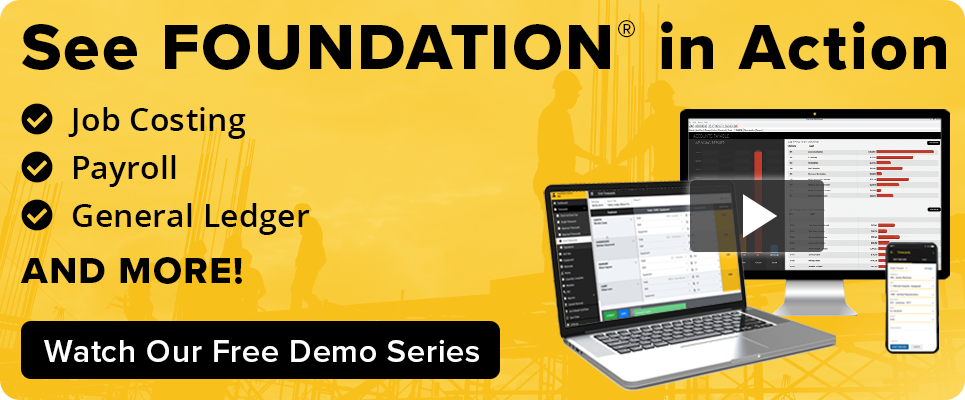
At Foundation Software, we place a high level of importance on our clients’ sensitive data. Our services prioritize enhanced cybersecurity, and we remain committed to delivering quality solutions and staying at the forefront of innovative technology. Get in touch with us today to discover more about our unwavering dedication to data protection.
Share Article
Keep on current news in the construction industry. Subscribe to free eNews!
Our Top 3 YouTube Videos
Learn about our software more in depth with product overviews, demos, and much more!
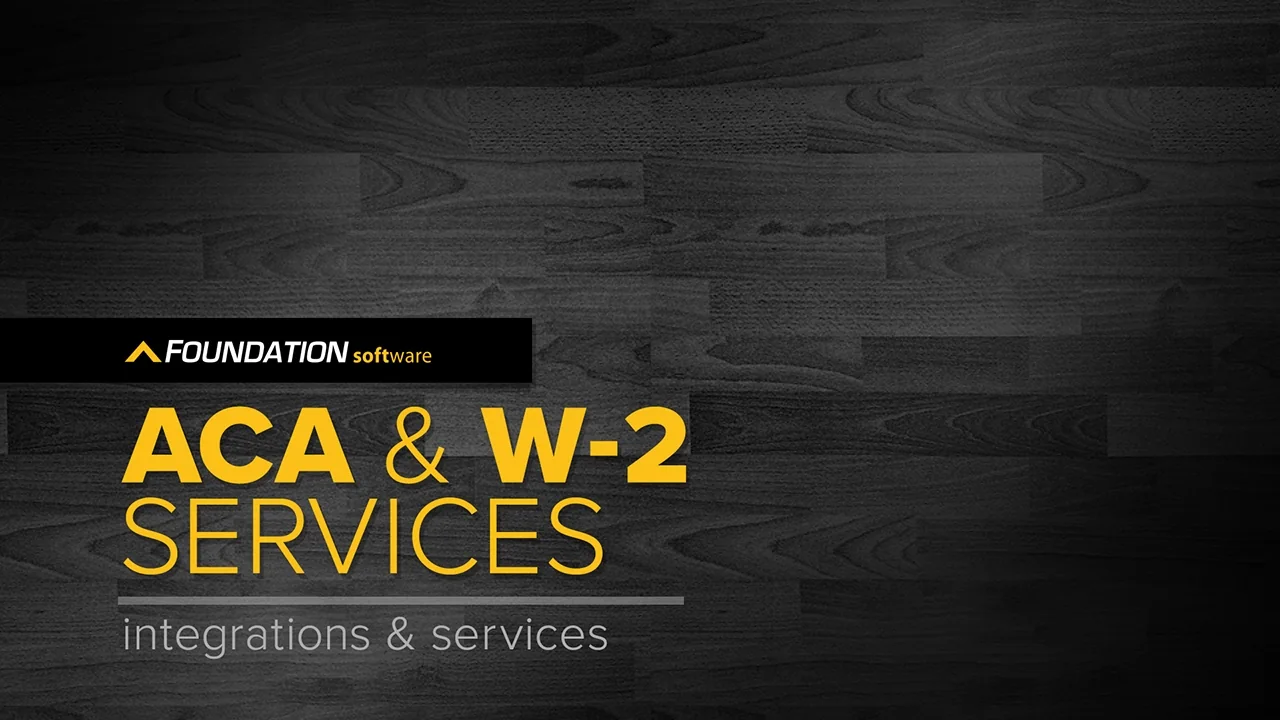
Our ACA reporting & e-filing services include official 1094-C and 1095-C IRS reporting, optional e-filing (no applying for a TCC code required), mailing to your employees and experienced support to help you.
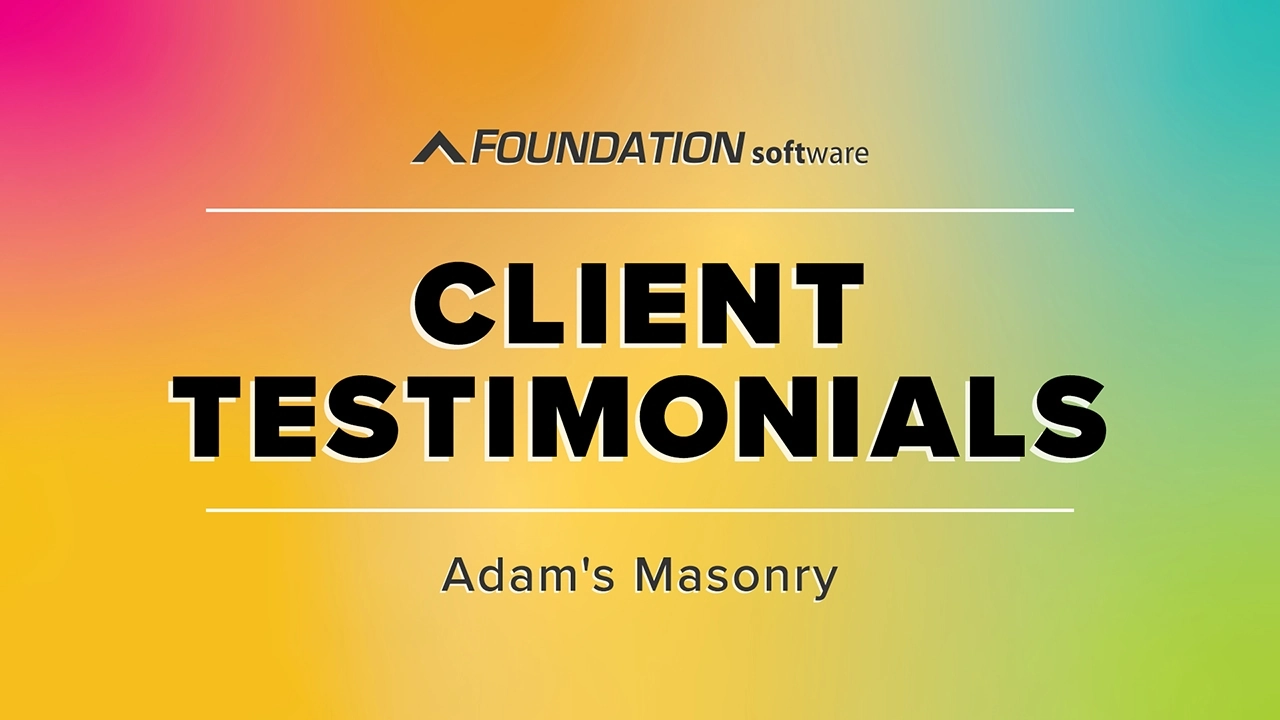
There are plenty of reasons to make FOUNDATION your choice for job cost accounting and construction management software — just ask our clients!
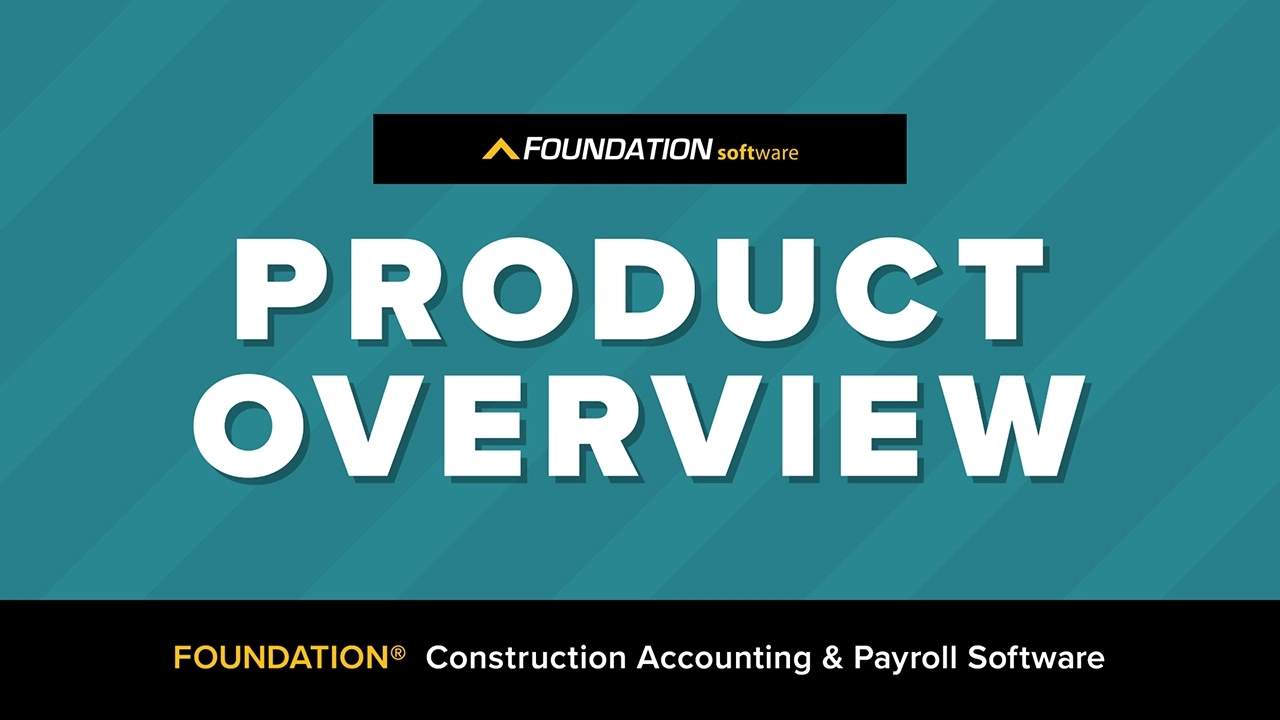
From job cost accounting software, to construction-specific payroll. Get an overview on your next all-in-one back-office solution.



